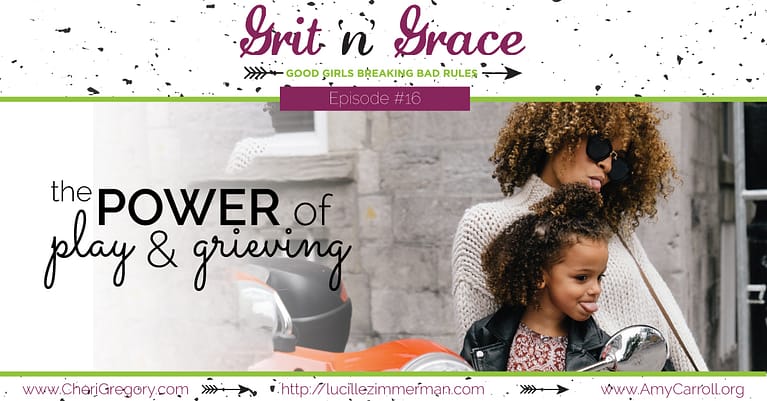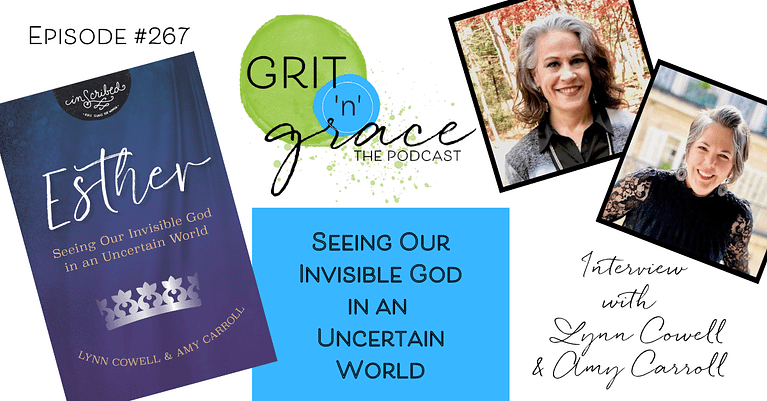Looking for Episode #35 1/2? Scroll on down!
(Prefer reading to listening? Download the Episode #35 transcript and the Episode #35 1/2 transcript!)
In a riveting conversation with Shaunti Feldhahn, author of The Kindness Challenge, Cheri & Amy learn the most effective tool for improving relationships that aren’t what they could be–kindness. Shaunti reveals the shocking truth that most of us aren’t truly kind and gives three practical steps to increase our kindness quotient.
Click HERE to Listen to Episode #35
Bonus “minisode” 35 1/2!
Click HERE to Listen to Episode #35 1/2
(This page contains affiliate links. Your clicks and purchases help support Grit 'n' Grace at no extra charge to you.)
Recommended Resources
- Shaunti’s book The Kindness Challenge: Thirty Days to Improve Any Relationship
- Find out your “Kindness Quotient“
- Take the 30-day Kindness Challenge!
Downloads
- Episode #35 Digging Deeper
- Episode #35 Transcript and Episode #35 1/2 Transcript
- Episode #35 Coloring Page — 2 Timothy 2:24
Your Turn
- What is your biggest challenge with showing kindness?
- How have you found yourself being nice instead of being kind? How could you change that?
Today’s Guest — Shaunti Feldhahn
Social researcher and international speaker Shaunti Feldhahn is the author of many groundbreaking books, including For Women Only, For Men Only, The Male Factor, and The Surprising Secrets of Highly Happy Marriages, which have sold more than two million copies in twenty-four languages.
Shaunti earned her master’s degree at Harvard University and worked on Wall Street and Capitol Hill before developing an innovative research method to deliver insights about personal and work relationships that most people miss. Shaunti’s findings are regularly featured in media as diverse as The New York Times and Patheos, Cosmo and iMom.
Shaunti’s husband Jeff is the founder of World2One, a game-changing pro-privacy marketing technology. The Feldhahns live in Atlanta with their teenage daughter and son, and two cats who think they are dogs.
Check out Shaunti’s website and follow her on Facebook.
Transcript — scroll to read here (or download above)
****
Grit ‘n’ Grace: Good Girls Breaking Bad Rules
Episode #35: An Unexpected Key to Improving Relationships
Amy:
Do you have any difficult people in your life? Maybe there’s this one relationship that would be so much better, if only …
Cheri:
One listener shared that for the last 18 years, she has wanted a close relationship with her in-laws, and has tried various things but nothing seemed to work. Another listener put it this way “They are lovely people, but… [they] can really do a number on me sometimes.”
Amy:
Well, I’ve got great in-laws, but I’ve definitely had relationships just like that. And I know that many women are nodding their heads in agreement.
Cheri:
Well, this is Cheri Gregory…
Amy:
…and I’m Amy Carroll…
Cheri:
…and you’re listening to “Grit ‘n’ Grace: Good Girls Breaking Bad Rules.” Our guest today is Shaunti Feldhahn, author of The Kindness Challenge: 30 Days to Improve Any Relationship.
Amy:
Her groundbreaking books, such as For Women Only, have sold more than 2 million copies in 23 languages. Shaunti, her husband Jeff and their two active kids live in Atlanta and enjoy every moment of life at warp speed.
Cheri:
Today, Shaunti is sharing THE most effective tool for improving any relationship … especially with that “difficult” person in your life.
Alright. So start us off with telling us why a book on kindness – I mean is there a meanness problem that you’re aware of or something?
Shaunti:
Not at all. There is no problem with meanness at all in this country or in any relationship in it. None. Every church is filled with sweet, wonderful people. It’s actually really interesting. I had no idea when I started all of this research stuff years ago, I had no idea how many threads would come together to really make it clear as I started this last project – that basically if you want to fix anything in your life – if you want to fix any relationship – if you want to fix our culture – really, there’s one answer. And it’s kindness. The problem is that we already think we kind of are kind and it’s all those other people that have the problem.
Cheri:
Oh, dear! Let’s just be clear right here – Amy and I are really kind and we have you on to talk to our listeners, so we’re so glad you’re here, Shaunti.
Shaunti:
I’ll have to confess here, because I have found as I was going through the research that I fell prey to this assumption all the time. That really I’m fine – it’s all those other people. Those mean drivers on the road you know, it’s them that’s the problem. Those difficult people that I work with – that’s the problem. And instead, as I started cataloging this, I started to realize there are ways I am unkind and mean – actively mean, every single day. And I had no idea. And that’s really the problem. There is so much of us that is really blind to some of these things. Once you start a purposeful effort – and there’s a few specific things that really need to happen for you to do that – it’s like your eyes open that God drops the scales from your eyes or something – and suddenly you see all these ways that you know, “I’ve got a long way to go.”
Amy:
Give us some examples – it makes me a little nervous to ask because I feel like some things about me might be revealed, especially since – Cheri, we were just kind of snarky to our guest. Oh boy! We might be in trouble! But go ahead Shaunti!
Shaunti:
No, no, no! It’s not like you have to be nice every moment of the day and you can’t joke around obviously, however, here is basically – let me outline what we found are the steps that have to happen – and this is what opens your eyes. And then I’ll tell you what I discovered about myself. So I should explain we spent basically 2 years of intense research and then there were probably 6 or 7 years before that where we were kind of dabbling in it. To try to figure out what does kindness actually mean? Because you can say ‘be kind’ – and we all kind of think we are, and we don’t really know what that means. And so really kindness means 3 different things and we put it together in something called the 30 Day Kindness Challenge. And it’s really doing three things for 30 days. You pick somebody – it’s actually just one specific person by the way, this is really the secret sauce of why this matters so much.
Cheri:
So we don’t have to be nice to everybody for 30 days?
Shaunti:
Imagine that, you know? So it’s just that one person. Yeah – no. You know it’s funny. But if you pick one person that you want a better relationship with – and it could be somebody like your spouse – maybe you already have a good relationship you just want to make it better. Or maybe it’s, you know, your mother in law’s kind of difficult and you really kind of need a good relationship with your mother in law – or your kids, or your colleagues or whatever just pick a person. And for 30 days do three things. First you don’t say anything negative about that person either to them or about them to somebody else and that is usually where we trip ourselves up right? Because I can be really sweet to my mother in law but if I drive away in the car with my husband and I go complaining about how she’s always passive aggressive, I’ve completely sabotaged that relationship and how I think about it. And I just haven’t realized it. And so that’s the first thing. Nothing negative for 30 days.
Second thing is to every day find one thing that you can sincerely praise or affirm and you tell that person that thing and you tell somebody else. So you can’t complain about the fact that she’s passive aggressive, but you’re kind of looking for things, because you have to find something every day to praise – and you notice, you know, “Mom, you always watch the kids, every time we ask. Really appreciate that about you.” And then when you drive away, you tell your husband, “You know, that’s really sweet of her.” And what you’re doing is focusing on what God says, whatever is lovely and worthy of praise, rather than what’s worthy of driving you crazy. And you’re putting that in your mind. It’s – God has given us the ability to heal these relationships if we will heal how we feel about the relationships.
And then the third thing is every day for 30 days is to do one small act of kindness or generosity for that person. Just one little thing. Like – you know on your way over to drop off the kids you stop and pick up her favorite coffee cause you know she ran out of coffee the other day and you get her a bag of coffee. Or whatever – I mean, it could just be that she needs time on the phone with you, and you really don’t have it, and you really don’t want to give her that time on the phone, but you give her that 15-20 minutes anyway. It’s just doing something that says, “I care about you. You’re worth caring about.”
With all those three things you’re reaffirming how you could feel about that person. And God changes your feelings because you’re suddenly focusing again – not on the things that really are there that are there that really are concerns, but on the good things that really are there. And it’s remarkable what happened in the research! When we did this before and after…you know how we do surveys – 89% of relationships improved which is a huge number! I mean that was a big deal. And here’s really the thing that I found – is that it opens my eyes to the ways that I thought I was kind. I thought I was positive. I thought I was affirming already. And once I have to say nothing negative, oh my gosh! Then you realize how often stuff comes out of your mouth.
Amy:
Is the 30 days a magic number?
Shaunti:
Well, here’s what we actually found. Yes and no. We had a lot of people who were like, “Uh, do you have the 2 Day Kindness Challenge?”
Amy:
Sorry, but that was kind of the underlying question.
Shaunti:
Sorry, but that does not work! We found in the research that there were actually cliffs – and it takes about 2, 3, 4 days for your eyes to be open and for you to go “Oh my word! Like, I had no idea that I was unkind and I was negative or I wasn’t affirming, like everything I thought.” It takes several days for that to happen. And then what we found, is that over the course of about 2 weeks, you’re basically practicing – it’s like learning any other skill where you realize, “I was completely incompetent at this and I had no idea.” And now you’re practicing and learning this new skill – it really is a skill of kindness. And then the last 2 weeks are making that a habit. And you don’t have to think about it so much. Like the first 2 weeks you’re having to think about it all the time. The last 2 weeks are developing a habit so that by the time you get to the end of the 30 days, that was roughly when we saw that people didn’t have to think about it anymore they just did it and it became really more of a lifestyle, which is really what it should be anyway, right? It’s just this is the way to get there.
Cheri: What’s the difference between kindness and niceness?
Shaunti: This is the way that I think of it. I think of niceness as being – it’s not like it’s bad – but it’s very surface-y. You know? It’s a surface politeness, pleasantness – there’s nothing wrong with that, it makes the world much more fun, but it also…because it’s surface-y, it’s also not this deep sense of caring about the other person. And that’s really what we’re called to do. Right? We’re called not just to be nice. We are truly called to be kind. And that means, truly, no matter what this other person has done to us, that we are supposed to love and care for them as if they were treating us very well. We are supposed to show them – this is really what Jesus said in the Sermon on the Mount, right? This is the golden rule. Where we think, you know do unto others as you would have them do unto you – we’re like, oh that’s so sweet – that such a nice sentiment!
Ugh, no, actually – read it. He is talking about situations where there is active injustice– and what he’s saying is, you are supposed to treat the person who is actively being awful to you in the kind, grace-filled way you wish they were treating you. That is what that means, and that is true deep kindness and it requires a lot more strength of character, it requires a lot more reliance on the Lord, because there’s no way that I can really do that. I can be nice and surface-y, and then when I drive away, “Raw – raw – raw – raw – raw!” but that’s not kindness, it’s going to sabotage myself, I’m never going to have a good relationship with that person. But I’m called to try as far as it depends on me to have a good relationship with that person because that person needs to see something of Jesus in me.
Amy:
Shaunti, did you guys do any research as far as talking to the person who had the actions done towards them?
Shaunti:
You know it was interesting a lot of the people, we had about 700 – I have to look it up – 700 and something people were in our study group who went through the 30 day kindness challenge and different iterations of it as we were trying to figure out what worked, what didn’t, all that. Most of those 700 if I had to guess I haven’t looked it up but if I had to guess, probably about 600-650 they did not tell the other person they were doing the 30 Day Kindness Challenge because they thought it would be discounted. You know, “Oh you’re only doing that because you have to, or whatever.” So most people didn’t.
However, of the people who did, yes, I actually did interview quite a few of the spouses, or kids, whomever it was that was the recipient, of the kindness, and it’s interesting. Because there was this – there was this sense of, there’s something different but I can’t put my finger on it. Like, it wasn’t like they were constantly thinking about the fact that this was happening – it was just, things were pleasant. It was happy. It was…it was…just a temperature in the home or whatever. The temperature changed, and everybody enjoyed life more. And that’s really the cool thing. About this is that this tool of kindness really is a tool. It truly is. We joke that it’s a superpower, but it’s a tool. And you want to make your home a positive environment, you want to raise the tone, you want to have it be pleasant you want a relationship to be a good one rather than a contentious one? Use kindness.
Cheri:
Okay, so Amy and I are both recovering perfectionists, so I’ve got a big question for you here. Chapter 6 is on nix the negatives, chapter 7 is on practice praise…The problem with those of us who are perfectionists, is we are like expert at noticing at what other people are doing wrong. We know exactly how to fix them! If only they would listen to us! Which they never do! It’s so frustrating! Which just makes us all the more upset and it’s so hard to be kind in situations like this! So, what if one of our listeners is currently feeling convicted that maybe, maybe she should take a different approach, and focus on, you specifically say, “Instead of focusing on what other people aren’t doing, or what they’re doing wrong, to focus on what they are doing.” But it’s not reaching 100% so how do you reward something that’s 95% rather than 100%? Help me Shaunti! Help me! It’s me; I don’t know what to do!
Shaunti:
I know, believe me, and this is really, actually you’re going to laugh, but this is the origin of this entire research project comes out of this exact question believe it or not. Because years and years and years ago I was doing some work with Nancy Lee Demoss, now Nancy Demosss-Wolgemuth, and she was telling me, “You know we have a lot of women in hurting marriages and you know, we issue this thing called the Husband Encouragement Challenge.” And a couple of these pieces, these elements like you know don’t say anything negative to him, and find something everyday to praise, she would issue with that challenge.
And I was so struck by that because I started to see that solve basically what you just said – which is one of the big things that many women struggle with without actually the self awareness that you have – like they don’t even know – we don’t even realize we’re doing it. We’re just like, “Well, why did you only put them in that sweater, husband? You know, instead of the coat? I mean they’ll get cold!” And the husband’s thinking, I gave them a sweater; I thought that’s all that was needed. But fine, you dress them next time. You know? I mean… Or you know, “the dishes don’t go in the dishwasher that side, they go in that side.” And the guy’s like, I did the dishes.
When you’re not allowed to say anything negative, that’s really the answer. And then when you’re forced to say the positive, then that makes you go, “Holy cow, batman! Like, snap the forehead, you know? He’s doing the dishes! Why am I focused on the fact that he turned the dishes the wrong way? Like really? I mean, who cares? That’s my way of doing it, why does it have to be the only way of doing it?” And suddenly, your eyes are opened to all these different ways that they’ve been doing all these amazing things for all this time and you really haven’t been giving them credit for it. And so, the answer to your question is, how do we do this? We do this – you don’t say anything negative either to them or about them, you find at least one thing to affirm, you tell them and you tell somebody else, and then you do that one little act of kindness which is an active way of saying, “I value you.”
Cheri:
What closing encouragement would you have for one of our listeners who’s like, “I think I want to try this, but I’m scared!”
Shaunti:
Well, honestly here’s what I would suggest. Don’t do it alone, right? Grab some girlfriends. Grab a group of people who can go through this. We actually even have completely free small group materials for this, because we know so many people will want to go through it, so you can find them at jointhekindnesschallenge.com. You can even sign up – if you want, you can sign up for reminder emails. And everybody sign up to start on the same day and then do the 30 Day Kindness Challenge together. And we all kind of know that; that it helps to sort of when you’re walking a path to walk it together. I mean that helps as women especially, you know, it’s a big deal. But, it really we found in the research, there’s actually a difference that happens. When you are in that phase of, “I’m going to kill him. I’m going to kill him. I’m going to stop.” Or “I can’t do this anymore.” Or whatever, right? To be able to have a girlfriend to call and say, “I’m going to kill him!” And then they can talk you down off your tree.
And give you the perspective, “Remember, he came home early all last week, you know. He took the kids to soccer every day so you could be home with the baby.” Yeah but the baby was sick and that was his job! “I know, but you can still say thank you!” You know? And that kind of input is valuable, and you’ll see as you go it makes it so much easier. And then suddenly you really wonder, you get to the end of the process and you really wonder, what all the problems were about back then anyway. This Kindness Challenge project has been really life changing for me and I really, really, hope that everybody does this and is part of this movement of kindness. Cheri: It just about killed me to edit this episode down to under 20 minutes. Amy: How much was left over?
Cheri:
There’s 8 more minutes!
Amy:
You didn’t delete it, did you? EVERYTHING Shaunti said was so fabulous!
Cheri:
I know!
Amy:
Couldn’t we … couldn’t we just do a 2nd podcast this week? Cheri: Hmm. You mean, like Episode 35 1/2?
Amy: Yeah!
Cheri: You have THE BEST ideas! Okay. Give me a few days … and Episode 35 1/2 will be live … let’s say it’ll be live by Thursday!
Amy: Head over to GritNGraceGirls.com/episode35 to enter this week’s drawing for a copy of Shaunti’s book: The Kindness Challenge: 30 Days to Improve Any Relationship You’ll also find some great freebies from Shaunti, this week’s Digging Deeper Download, Bible verse art, and transcript.
Cheri:
We hope you’ve enjoyed Episode #35 of Grit ‘n’ Grace: Good Girls Breaking Bad Rules!
Amy:
Join us next week, when Cheri and I will be processing with you what we learned from Shaunti. Cheri: For today, grow your grit … embrace God’s grace … and when you run across a bad rule, you know what to do, go right on ahead and
Amy ‘n’ Cheri:
BREAK IT!
Grit ‘n’ Grace: Good Girls Breaking Bad Rules
Episode 35 1/2: More Wisdom About an Unexpected Key to Improving Relationships
Cheri:
Hey, this is Cheri Gregory…
Amy:
…and Amy Carroll…
Cheri:
…and you’re listening to Grit ‘n’ Grace: Good Girls Breaking Bad Rules, Episode 35 1/2.
Amy:
Our interview with Shaunti Feldhahn about her new book The Kindness Challenge: 30 Days to Improve Any Relationship was so good, we just had to put editing aside and share it all.
Cheri:
Without further ado, here’s the rest of our convo…
So, really, this could’ve been called the Anti-Selfishness Challenge- that just wouldn’t have sold very well.
Shaunti:
Probably!
Cheri:
Amy and I talk so often about perfectionists who are all or nothing, and seeing multiple perspectives is so hard. We’re used to one right way and what you’re saying is there’s a lot of good ways and right ways to be. Because what you’re describing aren’t moral issues here; you’re describing preferences.
Shaunti:
Yes. It’s always preferences.
Cheri:
There’s not a right of wrong there and so instead of being so focused on my preference you’re saying I’m going to be looking to discover their preference and celebrate it and be grateful that they’re honoring me with their presence and their interaction in my life.
Shaunti:
And just to recognize, you know there is something that is fundamentally – and I’ve done a whole bible study on this – called the life ready woman, by the way, which is why this is a big passion of mine – there’s a fundamental way that we as women especially tend to have this little sinful nature creep up in our lives and its called control. Right?
Cheri:
We don’t know what you’re talking about. Could you define that word? Sorry I’m totally teasing keep going.
Shaunti: Men have some central tendencies of their own. Theirs is to be passive and back off in the face of control. We each have our own things, but for us as women we don’t realize that legitimately – okay this is not just a matter of difference of opinion. You know, his way could actually be better. That other, that colleague’s way – that might – that decision that they made that you’re pushing and pushing and pushing to change…you know what, if you stopped pushing and thought for a minute and backed off for a day you might say “You know what, if I let myself acknowledge it, that way might actually work better.” And there’s just something in us that has a hard time with that for some reason. So this is one of those prescriptions to sort of “get over thy self.” It’s something that really helps.
Amy:
That’s really good and I’m just thinking about putting this into practice. I mean I can agree with you mentally on the definition of kindness, but as a recovering perfectionist I thought helping you was kind. “Helping” you.
Cheri:
That’s what we call control on this show, Shaunti! We call it “helping.”
Amy:
But I’m “helping” you… and so doing this will actually take that definition of kindness that I give mental assent to and put it into our hearts. Because we have to fake it till we make it, right? In this challenge…
Shaunti:
Very, vey much so. This was the thing that was so encouraging. The first step is going “Okay fine. I’ll do this because it’s probably a good thing and I want this relationship to improve.” The second step is “Holy cow! My eyes have been opened and I’m not nearly as kind as I thought I was. I’m more negative and not nearly as affirming as I thought I was. I don’t do all these things I thought I did.” So then there’s the stumbling around and then its, “But I don’t feel like it.” Right? That’s the next step. “But they don’t deserve it. But he’s…but she’s…” you know whatever that is. There’s that argument with yourself and that’s where that faking it till you feel it becomes this huge tool.
It really becomes God’s prescription. And that why we’re commanded to do these things even when we don’t feel like because God knows if you will do this at some point along the way you’ll realize, “You know I kind of like this person now. Everything that they did used annoy me, but I kind of like them now.” Or “I just don’t notice all those things about my husband that used to drive me crazy. What were those again?” And it makes perfect sense. If yore irritated with someone and you tell them that you’re irritated and you tell your girlfriends at the office that you’re irritated…are you going to be more or less irritated?
Amy:
Right
Shaunti:
The answer is pretty obvious, right? You’re going to be more “rant rant rant” but if you are irritated but you refuse to talk about it, and instead you look for something that’s affirming and you tell them and you tell your girlfriends at the office everyday…are you going to be more or less irritated?
Amy:
This is so good.
Shuanti:
Everybody knows the answer to that!
Amy:
I knew within the first 5 minutes who I was supposed to do this challenge with. So I’m like, “Oh wow. Go to work Amy Carroll!”
Cheri:
And the phrase you used at the beginning of our time together, Shaunti, is you used the phrase “heal out we feel.” So we’re either going to make it worse or we’re going to participate in the healing. And I can – just listening to you – I can see how that would happen. Because I think it was back in the seventies or eighties we believed we needed to let it all hang out and we would feel better if we vented, and I think the research has come out really clearly that doesn’t actually work.
Shaunti:
Imagine that. Yeah, actually its funny- I was looking at – and this was from one of my previous research studies; I had to dig a lot into the brain science that had come about what influences our emotions and this kind of stuff and – there was this researcher names Brad Bushman (he’s a professor at Ohio State) and he had done all this work on anger management and completely has debunked this idea that we all sort of have that if you are really, really frustrated and somebody is getting on your last nerve, its really important to let a little steam out of the kettle so that you don’t explode eventually. Like if you just bottle it up that eventually you’ll explode. And I think all of us kind of subconsciously believe that for some reason. And he has completely debunked that idea because it turns out that when you express that frustration, that irritation, that little what you call “venting” its actually not called venting; its actually activating more and more and more, this anger system in the brain.
Cheri:
Wow.
Shaunti:
And every time you talk about it, every time you say those things…that anger system gets turned up a notch. It’s basically like turning up the heat more and more and more, and instead when you refuse to talk about it- that doesn’t necessarily mean ignore it, but if you just don’t complain about it, you don’t talk about it the same way you used to, it’s like taking the kettle off the burner and putting the lid on tight and suddenly the steam…just there’s nothing happening. And that really is the way God has wired our brains. It’s remarkable that when you do that and then you’re looking for these active way to praise…you’ll see them everywhere. And you know what? It doesn’t solve the big problem. Those problems are still going to be there but seeing the other things that balances them out- It makes it so much easier to solve those problems.
Amy:
It’s beautiful to hear that psychology is affirming what our creator has always said is true.
Shaunti:
I love it.
Cheri:
You know it’s so fun doing the video because I can just see it in your face- you do have a light behind you, making you look somewhat angelic, but even beyond that it is just- you are so effusive about it. So Amy, what do you think? You up for it?
Amy:
I just said at my church that I don’t have time to lead a bible study or to lead a book study, and right when you talked about the group challenge I was like, “Oh Jesus, I think you’re redirecting me. Okay!” Because I’m inspired by the thought of doing this with a group. I think that would really help.
Cheri:
Head over to GritNGraceGirls.com/episode 35, where we’re giving away a copy of Shaunti’s new book The Kindness Challenge: 30 Days to Improve Any Relationship. You’ll also find some great freebies from Shaunti, this week’s Digging Deeper, and a transcript of today’s podcast.
Amy:
We hope you’ve enjoyed Episode #35 1/2 of Grit ‘n’ Grace: Good Girls Breaking Bad Rules! Join us next week, when Cheri and I will be processing with you what we learned from Shaunti.
Cheri:
For today, grow your grit … embrace God’s grace … and when you run across a bad rule, you know what to do, go right on ahead and
Cheri & Amy:
break it!
You’ll never miss an episode when you sign up for weekly updates!











I am so ready to do this 30 Day Kindness Challenge!
What a great podcast ladies, thank you!
There is (ahem) one relationship I have in which this challenge will be a perfect way to
help me strengthen with His grace. Blessings!
Kind vs nice that is eye opening
I really needed to read these transcripts today. God is speaking to my heart through these episodes about several super-challenging work relationships. I don’t know if it’s wise to offer kind acts, but I can definitely focus more on the positive than the negative. You’ve given me a lot to consider, and I’m grateful.
I have already listened to this episode twice. ? I have had so many practical and encouraging quotes from you ladies through these podcasts. This episode has challenged me to take on the kindness challenge. I hope and pray it gives me the perspective of true kindness. I love being kind and helpful when it fits into my timeslots and expectations for the outcomes ?. I was challenged by someone sharing, “you love as well as you are willing to be unconvinced.”
Thanks ladies. Now I am praying my sister will do this with me as my accountablity partner.
Oops ^ inconvenienced not unconvinced